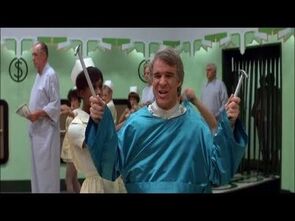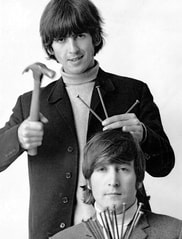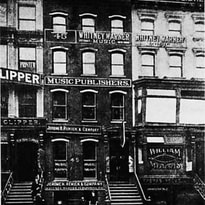I grew up with some knowledge of this song. It was the stereotypical lounge-lizard number, with lots of “heys” and “dears.” Nothing really special. Then, when I was about 17, I came across the Louis Armstrong version of the song. That was something very special, that I thought no one else knew anything about. Turns out that I was wrong on so many levels.
The History
To start this story, I need to go back quite a ways to 1728, when something called The Beggar’s Opera was staged for the first time in London. This opera, by John Gay, was a satire based on the English love for grand Italian opera, along with commentary on the political doings of the time. It introduced us to the character of Captain Macheath, who is someone very much in the mold of an anti-hero. He is a debonair highwayman who goes through a series of events that end with him having four pregnant women, each claiming him as her husband. At which point, he declares himself ready to go to the gallows. He is reprieved, and there is (somehow) a happy ending. {Macheath is probably based upon a real person named Jack Sheppard (1702-1724) who was a notorious highwayman. He was captured and escaped from custody many times and became quite popular with the poorer folk of England.}
Now we can come forward two hundred years to 1928 when Die Dreigroschenoper (English translation: The Three-Penny Opera) opened in Berlin. The original Beggar’s Opera had been translated by Elizabeth Hauptmann, the girlfriend of Bertolt Brecht, the German playwright. He claimed the translation as his. The music was written by Kurt Weill. (I wrote about Kurt last fall in my blog on September Song.) The plot is pretty much the same as The Beggar’s Opera, with similar political commentaries written in.
Shortly before the musical was due to open, Harald Paulsen, the actor who was playing Macheath, insisted that his character have a better introduction to the audience. So, the song Mackie Messer, or Mack the Knife was born. However, they decided not to give the song to Macheath, instead giving it to a strolling minstrel to open and close the opera. The song is in what is called the moritat, or murder ballad style. The song is accompanied by the singer playing a barrel organ, or what we might call an organ grinder. (When we lived in Germany, we saw an organ grinder, complete with monkey in Trier one market day. I do not recall the man singing.)
The Song
In the song, Macheath is likened to a shark.
Oh, the shark, babe, has such teeth, dear
And it shows them pearly white
Just a jackknife has old MacHeath, babe
And he keeps it, ah, out of sight.
Ya know when that shark bites with his teeth, babe
Scarlet billows start to spread
Fancy gloves, oh, wears old MacHeath, babe
So there's never, never a trace of red
Now on the sidewalk, huh, huh, whoo sunny morning, un huh
Lies a body just oozin' life, eek
And someone's sneakin' round the corner
Could that someone be Mack the Knife?
There's a tugboat, huh, huh, down by the river dontcha know
Where a cement bag's just a'drooppin' on down
Oh, that cement is just, it's there for the weight, dear
Five'll get ya ten old Macky's back in town
Now d'ja hear about Louie Miller? He disappeared, babe
After drawin' out all his hard-earned cash
And now MacHeath spends just like a sailor
Could it be our boy's done somethin' rash?
Now Jenny Diver, ho, ho, yeah, Sukey Tawdry
Ooh, Miss Lotte Lenya and old Lucy Brown
Oh, the line forms on the right, babe
Now that Macky's back in town
I said Jenny Diver, whoa, Sukey Tawdry
Look out to Miss Lotte Lenya and old Lucy Brown
Yes, that line forms on the right, babe
Now that Macky's back in town
Look out, old Macky's back!!
This is just one translation of the lyrics. And this is based on the version done by Louis Armstrong. Louis (If you don’t know who Louis Armstrong is, I’ll leave it to you to look him up. He was massively important in American music.) introduced the song in 1956. Most of the people mentioned are characters in the play. Miss Lotte Lenya, however, was Kurt Weill’s wife, as well as the actor who played Jenny Diver in the original production. She was in the studio when Louis was recording, and he just put her name in. Since Bobby Darin based his version on Louis’ her name stayed in the song.
Bobby Darin came onto the pop scene with a ridiculous little song called Splish, Splash in 1958. (I’m not kidding!) He started out as a song writer, in – you guessed it – the Brill Building! He recorded Splish, Splash, and became a teen idol at the age of 22. He began singing Mack the Knife during concerts and decided to record it in 1959. This song brought him to the attention of adults.
In 1960, Mack the Knife as sung by Ella Fitzgerald won two Grammy awards. One for Best Vocal Performance, Single Record or Track, Female; and one for Best Vocal Performance, Album, Female. I must say that Ella gives it her all!
Since then, other translations have come forward, some of them very dark. This first one claims to be a word for word translation.
See the shark with teeth like razors
All can read his open face
And Macheath has got a knife, but
Not in such an obvious place.
Und der Haifisch, der hat Zähne,
Und die trägt er im Gesicht.
Und Macheath, der hat ein Messer,
Doch das Messer sieht man nicht.
Except its not. This is closer:
And the shark, it has teeth,
And it wears them in the face.
And Macheath, he has a knife,
But the knife can't be seen.
Or how about this one?
Oh, the shark’s teeth,
You can see them
Always ready to attack;
But you won’t see Mackie’s knife blade
Till you feel it in your back.
This one may be my favorite:
Though the shark’s teeth may be lethal
Still you see them white and red
But you won’t see Mackie’s flick knife
‘Cause he slashed you and you’re dead.
Mack the Knife remains another up-beat song about a serial killer, reminiscent of Maxwell’s Silver Hammer from last week’s blog. What is your favorite version of Mack the Knife? Have you ever seen The Three-Penny Opera? (I didn’t even know it was from this until I heard Roger Daltrey’s version in 1989!) Let me know in the comments below, I’d love to hear from you! I’ll be playing some of my favorite versions this week on my Minnich Music Facebook page, so be sure to check those out.
Until next time!



 RSS Feed
RSS Feed